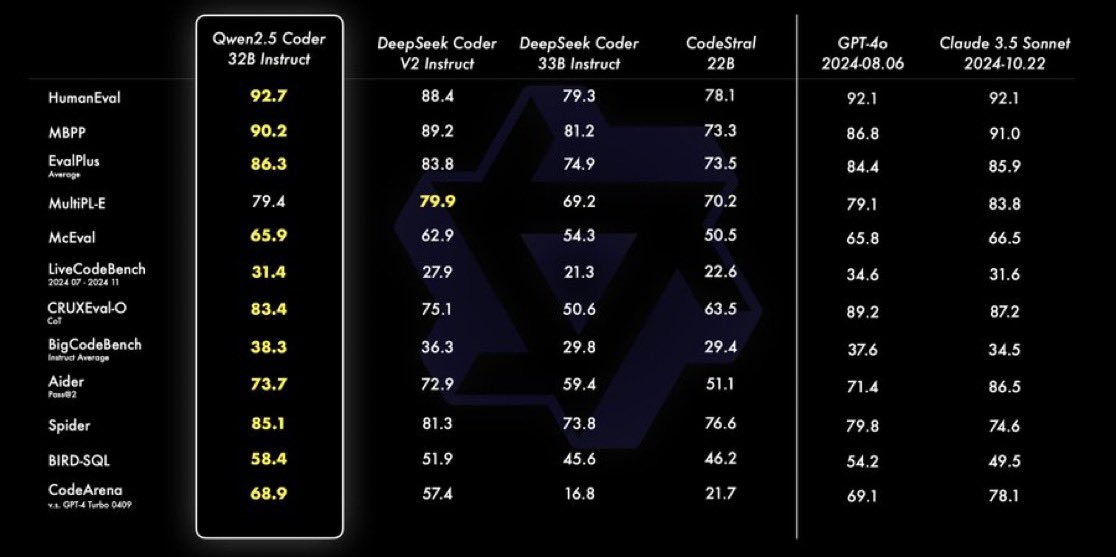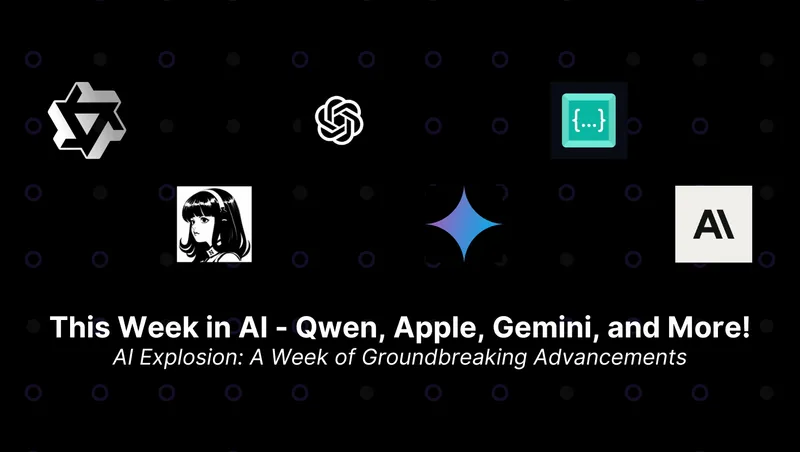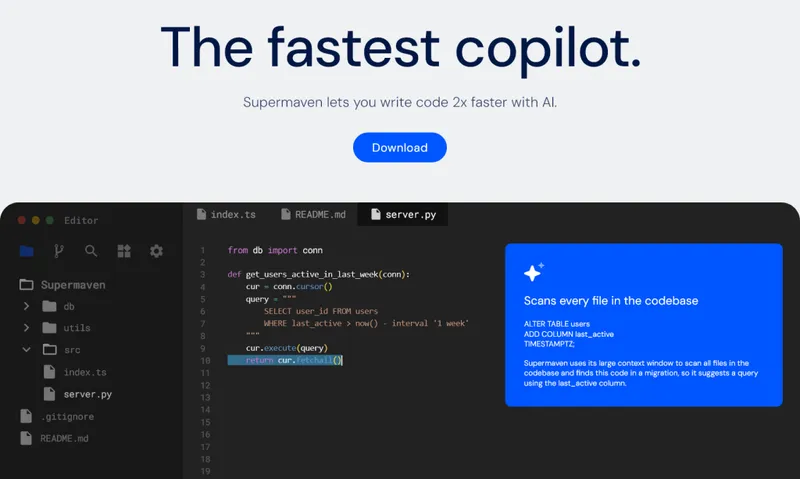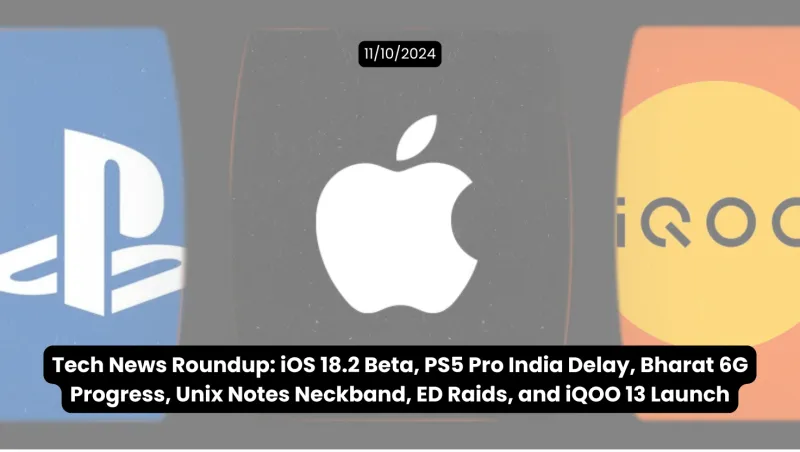Published on 2024-11-15 18:19 by Jainil Prajapati
AI Explosion: A Week of Groundbreaking Advancements
This week has been an absolute rollercoaster in the world of Artificial Intelligence. From new model releases to whispers of innovative hardware, the AI landscape is rapidly evolving. Let’s dive into the biggest headlines and unpack what they mean for the future of technology.
Qwen Expands its Horizons with New Models
Alibaba’s Qwen has made waves with its open-source approach to large language models. This week, they’ve doubled down on that commitment with the release of new and improved Qwen models. While details are still emerging, these advancements promise enhanced performance and capabilities, further solidifying Qwen’s position as a key player in the open-source AI arena. We’re eager to see how developers leverage these new models to create innovative applications.
Apple’s AI Ambitions: A Wall-Mounted Future?
Rumors are swirling about Apple’s potential foray into AI-powered hardware with a wall-mounted tablet. While details are scarce, speculation suggests this device could integrate seamlessly with Apple’s ecosystem, offering a centralized hub for smart home control, communication, and entertainment, all powered by advanced AI. This move could signal Apple’s intent to compete directly with existing smart home platforms, bringing its signature design and user experience to the forefront of AI-powered living.
Windsurf Agentic IDE: Coding with an AI Copilot
Windsurf’s Agentic IDE is making waves in the developer community. This innovative platform leverages AI to assist developers throughout the coding process, offering intelligent suggestions, automated code generation, and real-time error detection. This could significantly boost developer productivity and lower the barrier to entry for aspiring programmers.
Today we’re excited to launch the Windsurf Editor - the first agentic IDE, and then some 🏄
— Codeium (@codeiumdev) November 13, 2024
In Windsurf, we have given the AI a previously unseen combination of deep codebase understanding, powerful set of tools, and real time awareness of your in-editor actions. The result? A… pic.twitter.com/n9XG5ArYVy
ChatGPT Comes to Your Desktop
OpenAI has finally released a dedicated desktop application for ChatGPT. This move brings the power of conversational AI directly to users’ computers, offering a more streamlined and integrated experience. The desktop app promises enhanced performance and offline access (potentially), making it an even more valuable tool for communication, research, and creative tasks.
The ChatGPT desktop app for Windows is now available for all users 🖥️
— OpenAI (@OpenAI) November 14, 2024
Get faster access to ChatGPT with the Alt + Space shortcut, and use Advanced Voice Mode to chat with your computer and get hands-free answers while you work.https://t.co/UzTM7ZGRpt pic.twitter.com/hQ2kyUELpI
Nous Forge Reasoning: Enhanced Cognitive Abilities
Nous Research has unveiled Nous Forge Reasoning, a new framework designed to enhance the reasoning capabilities of AI models. This development could lead to more sophisticated and nuanced AI systems capable of tackling complex problems and making more informed decisions. We’re excited to see how this technology evolves and its potential impact across various industries.
Today we are launching the Forge Reasoning API Beta, an advancement in inference time scaling that can be applied to any model or a set of models, for a select group of people in our community.https://t.co/cRoH3KuMgt
— Nous Research (@NousResearch) November 12, 2024
The Forge Reasoning engine is capable of dramatically… pic.twitter.com/exqD60T0uf
AlphaFold 3 Goes Open Source: Democratizing Protein Folding
The open-sourcing of AlphaFold 3 is a monumental step forward for scientific research. By making this powerful protein-folding prediction tool freely available, DeepMind is democratizing access to cutting-edge technology, potentially accelerating breakthroughs in drug discovery, disease research, and material science.
We live in incredible times. pic.twitter.com/UPJS943Upz
— elvis (@omarsar0) November 11, 2024
Gemini Experimental: Pushing the Boundaries of Multimodality
Google’s Gemini continues to evolve with the release of its Experimental model. This latest iteration pushes the boundaries of multimodal AI, seamlessly integrating text, code, images, and audio. The potential applications are vast, ranging from advanced content creation to more intuitive human-computer interaction.
Yeah, Gemini-exp-1114 is pretty good :) https://t.co/DY75jZSt9b
— Logan Kilpatrick (@OfficialLoganK) November 14, 2024
Anthropic’s Prompt Improver: Refining the Art of AI Communication
Anthropic has introduced a new Prompt Improver tool designed to help users craft more effective prompts for AI models. This development could significantly improve the quality and relevance of AI-generated content, making it easier for users to communicate their intentions and achieve desired results.
We’ve added a new prompt improver to the Anthropic Console.
— Anthropic (@AnthropicAI) November 14, 2024
Take an existing prompt and Claude will automatically refine it with prompt engineering techniques like chain-of-thought reasoning. pic.twitter.com/aI3BipX1DG
The Future is Intelligent
This week’s advancements highlight the rapid pace of innovation in the AI field. From open-source models to groundbreaking research and innovative applications, the future of technology is undeniably intelligent. Stay tuned as we continue to cover the latest developments and explore the transformative potential of AI.
Written by Jainil Prajapati
← Back to blog




